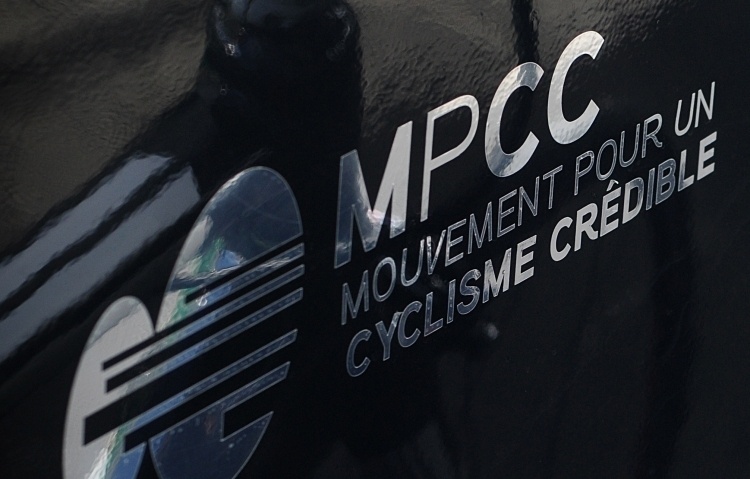MPCC to suspend cortisol testing as WADA ban injectable corticosteroids
Group's 14-year fight eases with rule changes in 2022

The Movement For a Credible Cycling (MPCC) announced it would suspend its cortisol testing in 2022, after the World Anti-Doping Agency (WADA) rules banning injectable and oral corticosteroids goes into effect on January 1.
Although the MPCC's protracted campaign to ban the type of corticosteroids injections legally taken under the TUE rules by high-profile riders like Bradley Wiggins before his Grand Tour successes has been a success, the organisation says it will continue to monitor the enforcement of the new WADA rules.
The MPCC "praised its members for the commitment they have shown on a voluntary basis and wants to highlight the fact that the movement now amounts for 68% of the professional peloton," the press release stated.
"After a 14-year-long fight, MPCC observed with delight the turnaround in the policy regarding corticosteroids. WADA now considers that the use of this substance enhance performance. Team doctors informed the movement about the new rules set by WADA, stating that the use of corticosteroids via injections and oral route will now be prohibited.
"These rules will be enforced starting 1st January 2022. Team doctors underline the fact that, as of today, some vagueness remain concerning the qualitative aspect of the tests that will be carried out to enforce these new rules.
"As we wait for the last details, the movement wishes to monitor the enforcement of these new rules and will suspend its own cortisol levels tests in 2022."
The MPCC was founded in 2007 after the Operacion Puerto doping scandal and subsequent revelations about rampant doping in the professional peloton by seven French squads protesting the failure of the teams organisation to adopt an ethical charter.
Get The Leadout Newsletter
The latest race content, interviews, features, reviews and expert buying guides, direct to your inbox!
It has since grown to include 10 WorldTeams, 16 ProTeams, nine Continental, two Women's WorldTeam and four Women's Continental teams as well as individual riders, staff, agents, federations and race organisers.
The group, led by former Peugeot/Z/Crédit Agricole team manager Roger Legeay, agrees to anti-doping measures beyond those imposed by WADA and the UCI, with members agreeing not to allow riders to race while they hold a therapeutic use exemption (TUE) for cortisone. They've also fought against the use of the painkiller Tramadol.
The MPCC has been measuring riders' cortisol levels – a potential indicator of steroid use – since at least 2012. Riders with low cortisol have been prohibited from racing, leading to conflicts with teams such as Astana, who kept Lars Boom in the 2015 Tour de France after he returned a low cortisol result.
Bardiani-CSF quit the MPCC over a similar conflict during the Giro d'Italia that year, while Lotto-Jumbo respected the rule and kept George Bennett from racing the Giro but left the MPCC shortly thereafter.
The group also appealed to the UCI and WADA to ban Tramadol in competition. The painkiller continues to be monitored by WADA, but the MPCC said the use of the drug has declined to levels "to the point of almost becoming irrelevant".
The MPCC said it will continue to monitor "the deviant uses of codeine and caffeine" and continue to advocate against the use of ketones.
Cyclingnews is the world's leader in English-language coverage of professional cycling. Started in 1995 by University of Newcastle professor Bill Mitchell, the site was one of the first to provide breaking news and results over the internet in English. The site was purchased by Knapp Communications in 1999, and owner Gerard Knapp built it into the definitive voice of pro cycling. Since then, major publishing house Future PLC has owned the site and expanded it to include top features, news, results, photos and tech reporting. The site continues to be the most comprehensive and authoritative English voice in professional cycling.